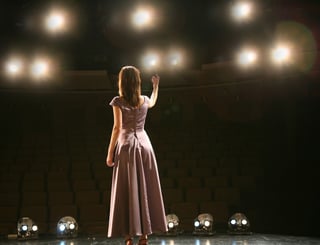Lisa Schouw has had a long career in the arts, in singing, songwriting, theater, and as a teacher of those arts. She began her formal study as a depth psychotherapist later in life when she was nearly 50, after discovering Pacifica and pursuing her Master’s degree in the Engaged Humanities and the Creative Life Program there.
While the early part of her life was very creative as she moved back and forth between dance, music, and theater, Schouw had had a longstanding interest in psychology, and recognized the need to provide a container to “hold” the personal material which would often unfold or “unravel” as they started to work with music or theater. When she discovered depth psychology and Pacifica, it occurred to her that she had found a way to “stitch those worlds together.” Depth psychology provides powerful tools for individuals to be witnessed in their process, whether it be remembering and healing from a trauma via Schouw’s psychotherapy practice, or tapping into deep personal or collective emotions when creating a piece of theater, which she often sees in her teaching capacity. Either way, deep listening and creating a fertile space for transformation to occur is paramount.
 Indeed, most of us can conceive of how creativity comes from that pregnant space where there is something lying in wait to emerge, so, when one listens, it provides a way for it to be born. I find it fascinating that Schouw is making the correlation between doing something creative like creating a play, and being in the therapy room. In both instances, bringing something unique into relationship with something else, an “other”—whether a human being, an idea, or an image—generates a creative spark, she notes. If, as a therapist or a teacher, she can trust that process and simply find that fertile space and sit in it, something will arise which may surprise both her and her client.
Indeed, most of us can conceive of how creativity comes from that pregnant space where there is something lying in wait to emerge, so, when one listens, it provides a way for it to be born. I find it fascinating that Schouw is making the correlation between doing something creative like creating a play, and being in the therapy room. In both instances, bringing something unique into relationship with something else, an “other”—whether a human being, an idea, or an image—generates a creative spark, she notes. If, as a therapist or a teacher, she can trust that process and simply find that fertile space and sit in it, something will arise which may surprise both her and her client.
Perhaps one of the most profound ways Schouw is integrating depth psychology into creative practice is through what she calls “theater of testimony,” the creation of a theatrical piece which arises from the gathering of “real people’s stories” portrayed in conjunction with some current aspect of social or cultural issues.... (Click here to read the full post or listen to the interview)